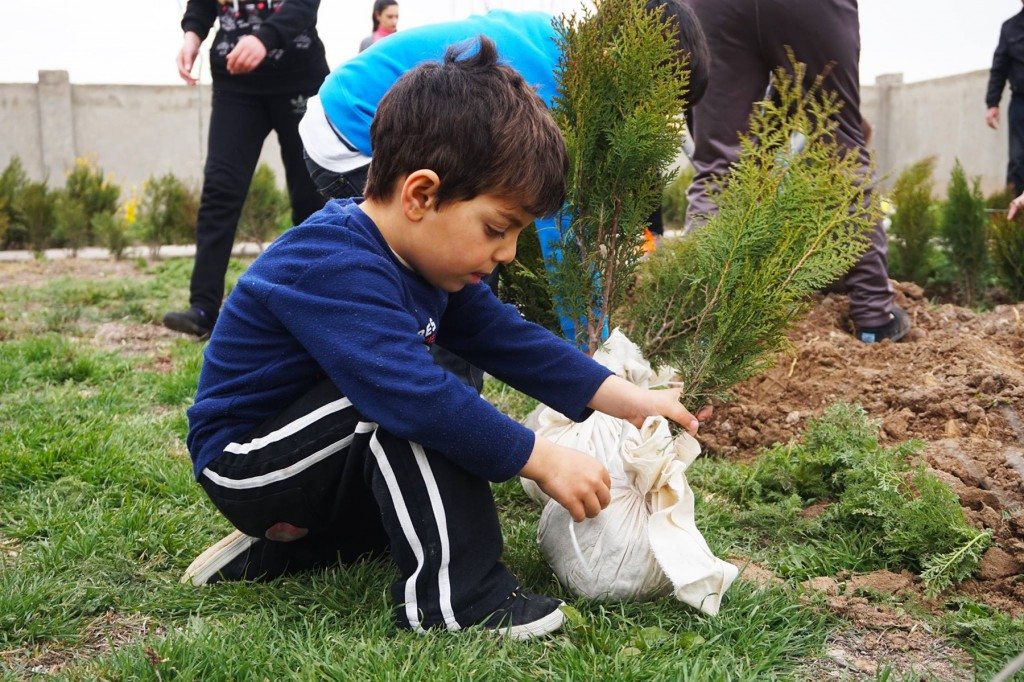“The issue speaks to the value of Armenia’s environment. Worldwide, the trend with Monsanto and GMOs is that the harmful effects on the soil, water, and farm profitability are increasingly exposed,” read a part of the statement, which is available below in its entirety.
Monsanto, a publicly traded American multinational agro-chemical and agricultural biotechnology corporation headquartered in Missouri, has long been surrounded by controversy, especially regarding the company’s role in agricultural changes, its GMO and chemical products, and its history of lobbying government agencies.
On Nov. 1, the United States Embassy in Yerevan hosted a conference focused on Armenia’s agriculture sector with the goal of connecting Armenian agricultural companies with the expertise, products, and technology U.S. corporations Valmont and Monsanto.
Below is ATP’s statement in its entirety.
***
In response to news of the U.S. Embassy hosting Monsanto in Yerevan, ATP founder Carolyn Mugar, director of Farm Aid, a U.S. non-profit that works with family farmers, invoked the Precautionary Principle: “When an activity raises threats of harm to the environment or human health, precautionary measures should be taken even if some cause and effect relationships are not fully established scientifically.”
The first endorsement of the principle was in 1982 by the United Nations General Assembly. This is a good framework for science, innovation and public policy, which the European Union has adopted, leading it to largely reject genetically modified organism (GMO) crop production.
The agribusiness event in Yerevan presents Armenians with an opportunity to talk about the future of Armenia, its food and farming. Who benefits from bringing this company into Armenia? What are the potential environmental, agricultural and food effects of GMO production? Here are just a few of the risks and considerations:
- Monsanto’s seeds are a threat to biodiversity and native and organic crops, because consolidation and corporate ownership of seeds threatens publicly developed seed, genetic research and farmer innovation and seed-saving.
- Monsanto’s pesticides have created superweeds/super pests resulting in increased use of even more toxic chemicals.
- Farmers have been pushed out of business and off the land by corporations like Monsanto due to corporate control of seeds, their required applications of proprietary pesticides and by failure to take responsibility for the drift of GMO seeds and pesticides. Also, GMO crops do not necessarily improve yield or farm profitability.
- Consumer trends are toward increased transparency in our food, including labeling of GMOs. The contamination of the US food supply with glyphosate, the result of GMO cropping, is now widely known. Armenia’s ability to retain its agricultural heritage as a GMO-free agricultural producer could result in important market opportunities.
- The long-term safety of utilizing GMO technology has not been fully evaluated. Hence the framework of the Precautionary Principle is the appropriate way for Armenia to determine the future of its farming practices.
The issue speaks to the value of Armenia’s environment. Worldwide, the trend with Monsanto and GMOs is that the harmful effects on the soil, water, and farm profitability are increasingly exposed.
With your support, ATP is working in the remote villages of Armenia for the long-term benefit of our people. That’s what we stand for. We believe in a strong Armenia with a healthy ecological and economic infrastructure.
Let’s be forward looking. Armenia—with its unique history and character—can seize the opportunity to be a GMO-free country.




















































